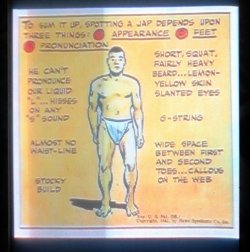Well, I have read quite a few of the books the show the HBO show True Blood is based on. I stopped reading at the novel where Sookie was dating the were-tiger, the reviews of the novel after that were pretty bad so I stopped there. Now in the novels you have a peripheral character, one of the cooks at the bar where Sookie works. He was, from what I remember a way in the background character. When HBO made the series they decided to use this character to give a "shout out" to all those brave members of the U.S. military by having him be a veteran of the Iraq war. You would think that was enough, but you would be wrong. This brave (we'll get back to this term in a second) veteran is...wait for it...suffering from mental illness brought on by his war time experience. Thanks HBO for honoring our soldiers. Well, since the first season was pretty wretched, I stopped watching the show until this season. I was channel surfing and decided, let's see how bad True Blood is now, after several seasons.
Apparently, this season, this mentally ill, Iraq war vet has his own story line. Hooray for him. In this story line we learn that he was a brave soldier, honorably serving his country and the cause of freedom....I'm sorry, I can't stop laughing. The truth is, this character flashes back to his time in the Iraq war and...wait for it...engaged in atrocities. You see, his squad goes out on patrol, in a war zone, and decides to hold up in a bombed out building...(yes, it is a mosque and they desecrate it) so that they can drink the booze and use the drugs they brought with them. You know, standard operating procedure for U.S. troops in a war zone. Welllll, they leave one guy out front to keep a look out, it is a war zone after all, and a lone, unarmed Iraqi guy comes out and starts talking to the sentry. Yes, you guessed it, they get into a confrontation and the U.S. soldier shoots the unarmed civillian, but as they say...but wait, there's more. After he shoots this guy, a crowd comes out and starts yelling at our brave troops, who are now drunk and high. As the squad is confronting the crowd, an "alledged," terrorist type shoots at our brave soldiers...and then they open fire on the unarmed civilian crowd killing everyone...but wait, there's more. Once they have killed all these innocent civilians, there is of course one woman who is badly wounded, but still clinging to life, and you guessed it, instead of calling for medical help, the squad leader tells one of the soldiers to kill her because they have been over there too long to deal with the blow back from the atrocity they just committed.
Yes, much like the rest of hollywood, HBO and True Blood went out of their way to honor our soldiers.
Apparently, this season, this mentally ill, Iraq war vet has his own story line. Hooray for him. In this story line we learn that he was a brave soldier, honorably serving his country and the cause of freedom....I'm sorry, I can't stop laughing. The truth is, this character flashes back to his time in the Iraq war and...wait for it...engaged in atrocities. You see, his squad goes out on patrol, in a war zone, and decides to hold up in a bombed out building...(yes, it is a mosque and they desecrate it) so that they can drink the booze and use the drugs they brought with them. You know, standard operating procedure for U.S. troops in a war zone. Welllll, they leave one guy out front to keep a look out, it is a war zone after all, and a lone, unarmed Iraqi guy comes out and starts talking to the sentry. Yes, you guessed it, they get into a confrontation and the U.S. soldier shoots the unarmed civillian, but as they say...but wait, there's more. After he shoots this guy, a crowd comes out and starts yelling at our brave troops, who are now drunk and high. As the squad is confronting the crowd, an "alledged," terrorist type shoots at our brave soldiers...and then they open fire on the unarmed civilian crowd killing everyone...but wait, there's more. Once they have killed all these innocent civilians, there is of course one woman who is badly wounded, but still clinging to life, and you guessed it, instead of calling for medical help, the squad leader tells one of the soldiers to kill her because they have been over there too long to deal with the blow back from the atrocity they just committed.
Yes, much like the rest of hollywood, HBO and True Blood went out of their way to honor our soldiers.

